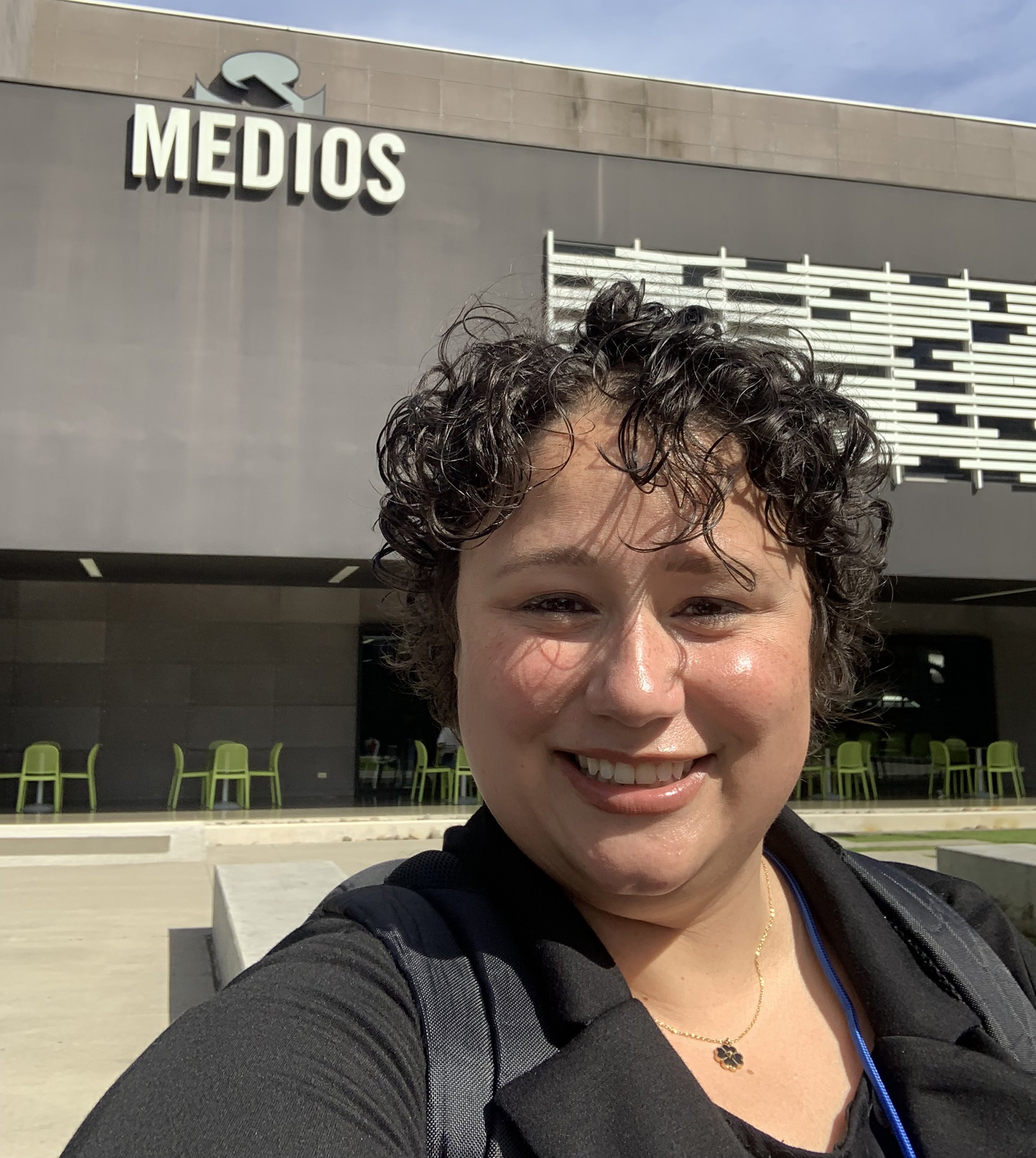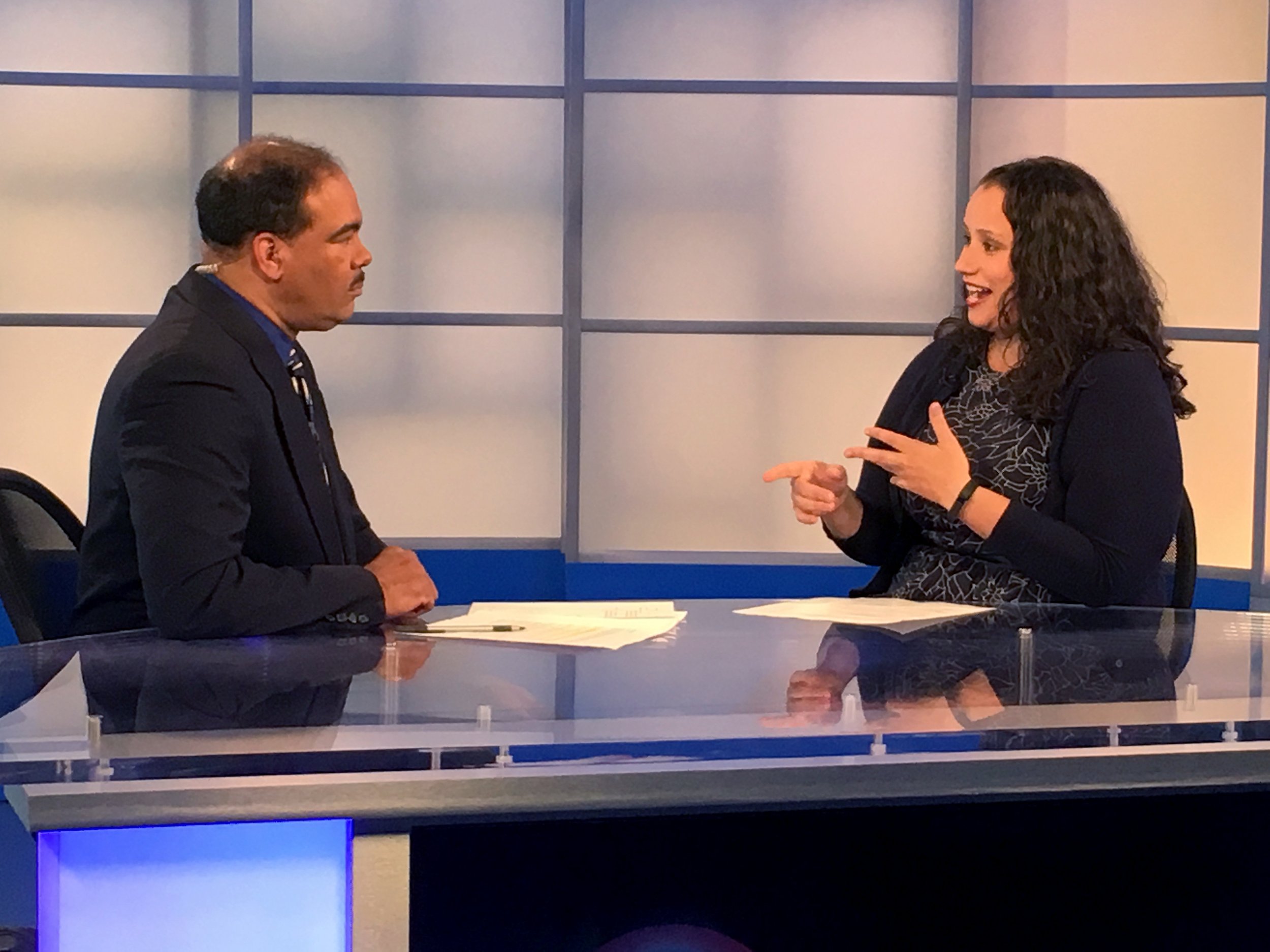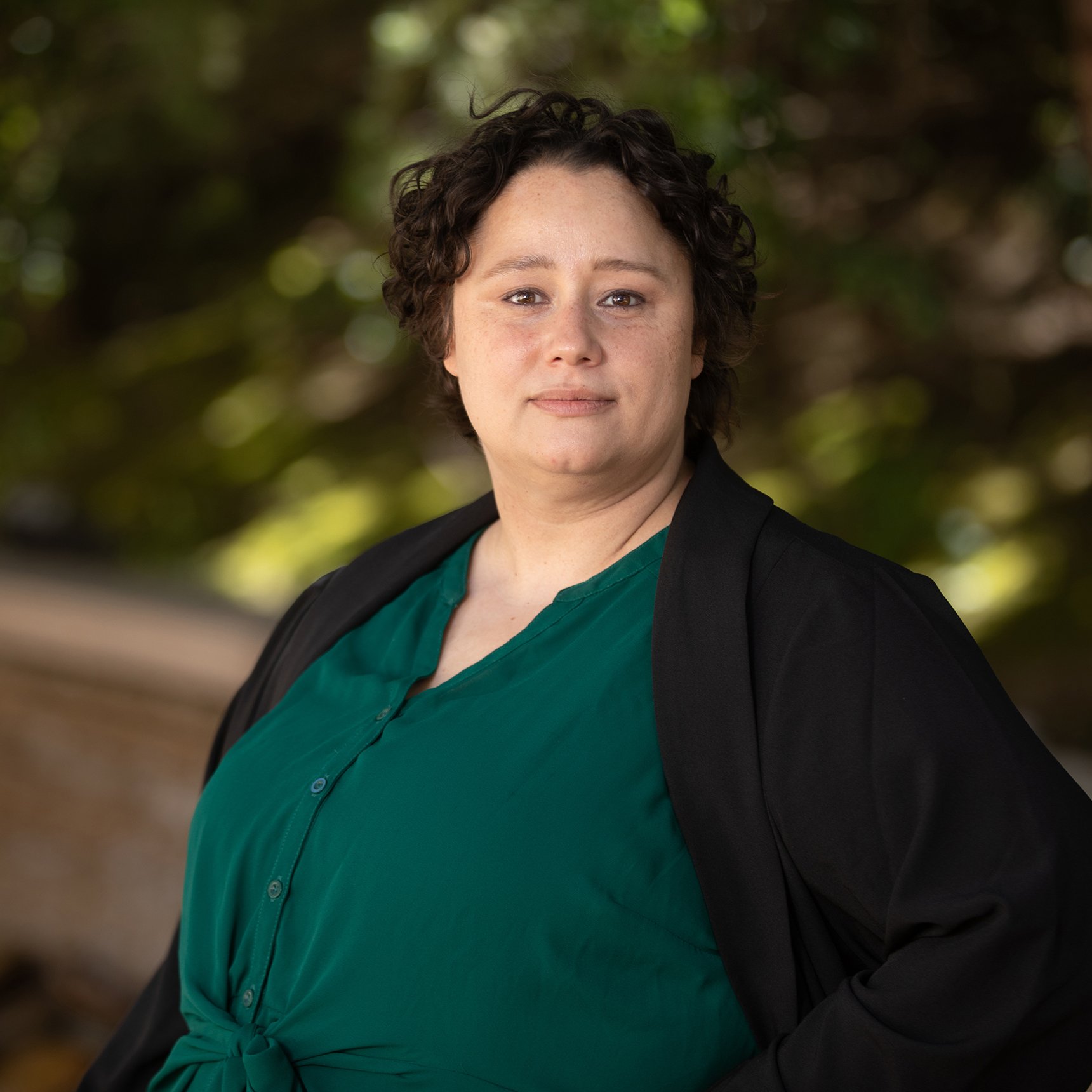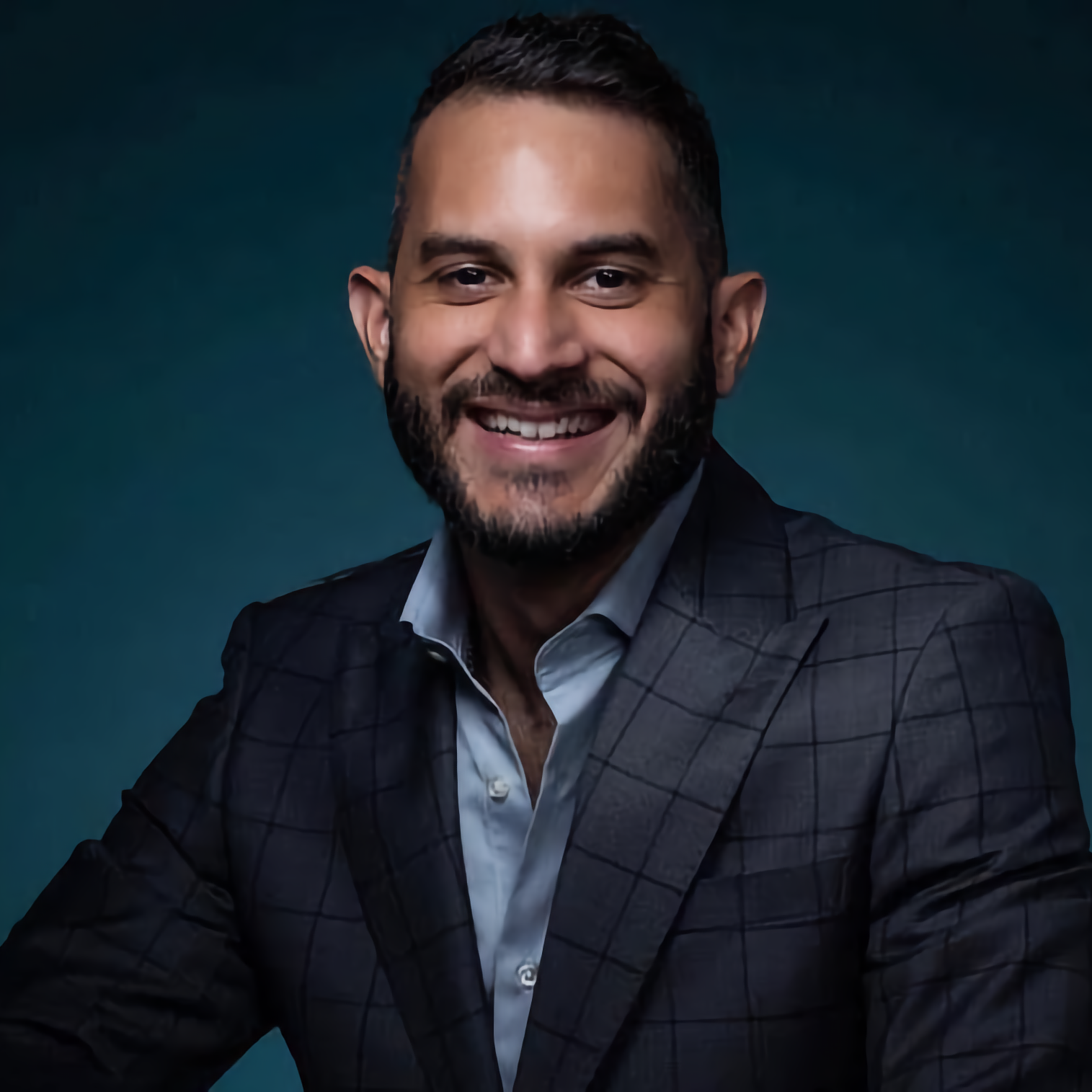“Neither from Here, nor from There”
The power and pressure from the in-between identities, sexualities and the journey of self-discovery
Editor’s note: This essay is part of the “Authentic Self” series, which is part of the initiative "More LGBTQIA+ Latinx in Newsrooms." It aims to share stories and underscore the importance of hiring more queer reporters in newsrooms. The series is a project of the National Association of Hispanic Journalists’ LGBTQIA+ Committee, palabra and GLAAD.
Words by Michelle Faust Raghavan, @MicheReports. Edited by Luis Joel Méndez González, @m_joel17, and Tat Bellamy–Walker, @bell_tati. Fact-Checked by David Cordero Mercado, @David_cmercado.
Have you ever heard the all-to-common question “…but where are you really from?” For many children of migrants, the answer is less than clear. “Ni de aquí, ni de allá” translates as “neither from here, nor from there.” Mexican American actor and producer Edward James Olmos described the concept in his role as Selena’s father Abraham Quintanilla in the 1997 film Selena.
“We have to be more Mexican than the Mexicans and more American than the Americans, both at the same time! It’s exhausting!” James Olmos said.
You don’t have to be Mexican American to relate to this line. If your identity has a hyphen in it, the concept rings true.
My identity has always been split. My heritage is Puerto Rican, but I grew up between Oregon and California, far from any large Puerto Rican populations. I’m multiracial, bilingual, bicoastal and bisexual. My identity spans across the binaries of gender and sexual orientation.
‘In the past, my stories have faced extra scrutiny by editors and audiences based on my racial and ethnic backgrounds. I didn’t want to add my LGBTQ identity as more fuel to the fire.’
Like Chicana feminist Gloria Anzaldúa, I straddle a spiritual borderland, existing in constant negotiation of my nuanced identities. There’s power in the in-between. Living in this gray space has helped make me a more empathetic and compassionate person. I use this understanding to better navigate the world, and that worldview transfers to my work.
First and foremost, I’ve always wanted to prove myself as a talented journalist. Being nonbinary and pansexual are part of who I am, but it is not all I bring to the newsroom. I am also a multifaceted strategist, editor, mentor, coach and reporter.
Michelle Faust Raghavan arriving at the offices of La Nación in San José, Costa Rica before a mini-conference they hosted for Latin American journalists in 2022. Michelle presented there about engaged journalism, service journalism and solutions journalism. Photo courtesy of author
Still, I’ve spent most of my working life afraid that coming out as LGBTQIA+ would cost me a career. The reality is that journalists of color are often judged based on their identity before they are seen for their abilities. In the past, my stories have faced extra scrutiny by editors and audiences based on my racial and ethnic backgrounds. I didn’t want to add my LGBTQ identity as more fuel to the fire.
In high school and college, I was pretty open about who I am. However, this changed when I entered the journalism industry. Since I'm perceived as a woman and sometimes date men, I’ve let most colleagues incorrectly assume I’m straight and cisgender. It was simpler that way. One less thing to hold against me.
I tried to come out more than a handful of times after growing close to certain colleagues. Unfortunately, even some of my gay and lesbian coworkers would contradict me or say that bisexuals didn’t exist. Like me, many of my straight work friends are Christians. Although I have made peace with my identity and my relationship with God, I worried they would reject me.
A couple of years ago, I decided that living authentically was more important than the world’s perceptions of me. I publicly embraced they/them (“elle,” in Spanish) pronouns and started experimenting with more androgynous clothing and hairstyles. It’s been a freeing process, but sometimes I still fear for my career. Ultimately, I’ve found relief as I have been able to be more of my complete self.
Even in the face of these barriers, journalism has long been my passion. As a child, I’d sit on the living room floor with my legs crossed watching Kermit the Frog report breaking news on Sesame Street. Shortly after, I started watching the local and national evening news. As the newscasts moved from talking puppets to people, I noticed that few reporters looked like me or my family members. I also noticed that Latine communities were often painted with a broad brush, painted as problematic immigrants without care for the issues we face and the real diversity that makes us who we are.
Michelle speaking to Rick Jackson in Cleveland, Ohio in 2016 on the WVIZ ideastream tv news program NewsDepth. Photo courtesy of author
The Spanish-language news was a little better. There were more stories from Latin America and the reporters were Latine, but I still didn’t see the diversity of skin color on screen that I saw at my family gatherings. My grandmother would sometimes point to the hyper-feminine women anchors and tell me that could be me. I knew that I would never be that thin, stereotypically feminine or, frankly, that good at doing my makeup.
It wasn’t until I decided to study journalism in college that I finally found a journalist who I could truly relate to. I discovered NPR’s Talk of the Nation formerly hosted by Ray Suarez. I loved his voice, how quick he was with facts, and how he could lead a solid and respectful debate on any topic. He was both brilliant and a proud Latino — a Nuyorican (New Yorker of Puerto Rican descent) just like my family. He had the job, the skills and the style that I wanted to grow into down to the suit and tie.
In a multitude of ways no soy ni de aquí, ni de allá and that may be hard for many to understand who have never experienced this in-between feeling. However, I’ve learned that the more that I own it, the more I will shine. Being who I am forces me to explore many aspects of the human experience. This has taught me to listen better, to ask better questions of myself, the world and others. The multiple facets of who I am only make me a better, more well-rounded journalist.
—
Michelle Faust Raghavan is the founder of Claridad Media, a newsroom consulting firm, and is currently researching best practices to improve retention of journalists of color in public media. Michelle is an award-winning journalist, editor, newsroom consultant and a regular managing editor with the Next Generation Radio project. As a policy reporter and radio host in public media member stations around the country, they advanced solutions, service and participatory journalism practices. Michelle is an NAHJ lifetime member and was recently a John S. Knight Journalism Fellow at Stanford.
Luis Joel Méndez González reports on climate change and disaster recovery for the Center for Investigative Journalism through Report for America since 2022. He is an experienced data-driven and multimedia reporter. Méndez González holds a Masters Degree in Data Visualization and Information Design, and sits on NAHJ´s Board of Directors as General At-Large Officer. He´s also co-chair of the LGBTQIA+ Committee.
Tat Bellamy Walker is the communities reporter for the Seattle Times, where he reports on diverse groups throughout the Pacific Northwest. Last year, he reported for NBC News' diversity verticals (NBC Latino, BLK, OUT and Asian America). In 2021, he was named a Poynter-Koch Media and Journalism Fellow, where he joined more than 50 local journalists from newsrooms across the US. His work has appeared in the Daily Beast, Business Insider and CNN.
David Cordero Mercado is a multimedia and investigative journalist. He has reported on hate crimes in Puerto Rico as a reporter for El Nuevo Día, the biggest newspaper on the island. He earned a master's degree in Communications with an emphasis in Journalism Innovation from Syracuse University in New York, and a bachelor's degree in Information and Journalism from the School of Communication of the University of Puerto Rico, Río Piedras Campus, as well as a second concentration in Political Science. He is also the Region 1 Director on the Board of Directors of the National Association of Hispanic Journalists.







